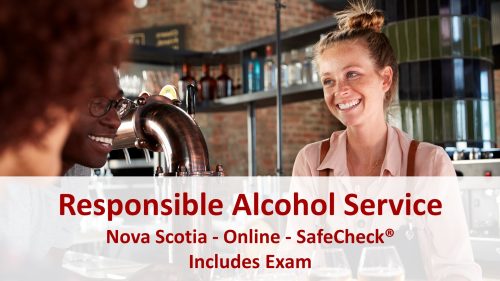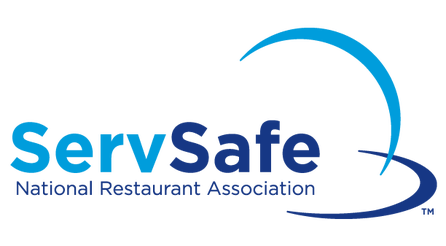A Comprehensive Guide to Getting Your safeserve Certification Fast
A Comprehensive Guide to Getting Your safeserve Certification Fast
Blog Article
Master Accountable Alcohol Service With Comprehensive Certification Programs
The mastery of accountable alcohol solution is not simply a regulatory demand; it is a basic component that improves the online reputation and operational integrity of establishments within the friendliness market. What challenges exist ahead for those who look for to boost their solution requirements?

Significance of Responsible Alcohol Service
Liable alcohol service is important to advertising public wellness and security in facilities that offer alcoholic drinks. It incorporates an array of methods created to avoid the overconsumption of alcohol, reduce the threat of alcohol-related injury, and ensure a safe setting for patrons and staff alike. By upholding responsible service criteria, facilities can minimize possible incidents of drunkenness, which may result in accidents, violence, or other unfavorable end results.
In addition, liable alcohol solution improves the total client experience. Patrons are a lot more most likely to go back to facilities that prioritize their security and well-being. This dedication fosters a positive reputation, encouraging referral referrals and repeat company. Furthermore, establishments that follow accountable solution methods typically experience reduced insurance costs and minimized legal obligations.
Moreover, executing liable alcohol service practices lines up with broader public health and wellness campaigns focused on minimizing chemical abuse and promoting community health. This aggressive technique not only shields specific patrons however additionally contributes to a much healthier society. Ultimately, liable alcohol solution is not merely a legal obligation; it stands for an honest dedication to the wellness of clients and the neighborhood at big.
Key Parts of Certification Programs
Qualification programs for responsible alcohol solution generally encompass numerous key elements created to outfit staff with the necessary abilities and expertise to offer alcohol safely. Primarily, these programs frequently include thorough training on neighborhood and state alcohol regulations, making certain that participants understand their lawful commitments and the repercussions of stopping working to abide.
One more essential part is the recognition of signs of intoxication - servsafe food handlers card. Team are trained to acknowledge behavior signs showing when a patron may be over-served, enabling them to interfere appropriately
Additionally, efficient interaction approaches are highlighted, showing personnel just how to engage with consumers in a manner that promotes accountable alcohol consumption. This consists of training in problem resolution methods, allowing personnel to take care of difficult situations calmly and professionally.
Moreover, programs often include functional scenarios and role-playing exercises, supplying individuals with real-life examples to practice their skills. Recurring education and sources are necessary for preserving expertise and abilities over time, as guidelines and ideal techniques develop. With each other, these elements produce a detailed framework that encourages team to promote a much safer drinking setting while lessening responsibility for establishments.
Benefits for Team and Establishments
Staff and use this link establishments alike gain considerable benefits from taking part in accountable alcohol service accreditation programs. For team, these programs enhance expertise and abilities associated with alcohol solution, furnishing them to determine indications of intoxication and carry out reliable intervention techniques. This training not just cultivates a sense of self-confidence amongst staff members yet also advertises a society of security and responsibility in the workplace.
For facilities, investing in qualification programs can bring about lowered obligation and fewer occurrences connected to over-serving. By guaranteeing that staff are trained in accountable service methods, establishments can reduce threats connected with alcohol-related occurrences, thus safeguarding their reputation and financial stability. Several territories supply rewards, such as lower insurance premiums, for certified facilities.
In addition, carrying out certified practices can boost consumer satisfaction and commitment. Patrons are much more likely to return to places that prioritize their safety and well-being. Eventually, a commitment to accountable alcohol solution not only cultivates a positive atmosphere yet also boosts the overall functional performance of establishments, making it a clever investment for long-term success in the hospitality market.
Usual Challenges in Alcohol Service
Making sure reliable alcohol solution is not without its challenges, even in establishments dedicated to liable practices. One significant challenge is the requirement for staff to accurately assess patrons' alcohol consumption degrees. servsafe food handlers card. This needs a keen understanding of just how numerous elements, such as food consumption, resistance, and specific distinctions, affect drunkenness
Additionally, the pressure to take full advantage of sales can contravene responsible service methods. Staff members might over here face problems in rejecting solution to intoxicated people, especially in social environments where peer pressure and assumptions prevail.
An additional difficulty is remaining updated with regional regulations and policies concerning alcohol service. Conformity is crucial, yet regular changes in regulation can produce confusion and might lead to unintended violations.
Educating programs may not constantly cover the subtleties of real-world circumstances, leaving team ill-equipped to deal with complex circumstances. Inconsistent communication in between monitoring and employees pertaining to expectations for responsible service can additionally aggravate these problems.
To navigate these difficulties successfully, facilities need to cultivate an environment of assistance, stressing the importance of liable service while giving the required tools and training for team to be successful.
Actions to Get Certification
To acquire Responsible Alcohol Service Accreditation, applicants commonly begin by investigating the certain requirements mandated by their local governing authorities. These requirements may vary dramatically depending on the region, so it is important to acquaint oneself with the appropriate laws and laws.

After picking a program, candidates have to finish the requisite training, which generally covers subjects such as determining intoxication, company website comprehending legal responsibilities, and executing techniques for liable solution. Participants need to actively involve with the product, as this expertise is vital for efficient alcohol solution.

Following training, prospects generally take an exam to analyze their understanding of the material. Effective conclusion of this assessment results in accreditation.
Conclusion
In final thought, mastering accountable alcohol service through comprehensive certification programs is necessary for promoting safety and boosting client experiences within the friendliness market. By equipping personnel with the necessary knowledge and abilities, establishments not only reduce threats connected with overconsumption and lawful liabilities however additionally cultivate a society of obligation. This commitment to accountable service ultimately causes raised customer loyalty and operational success, enhancing the value of continuous training and adherence to alcohol service requirements.
Report this page